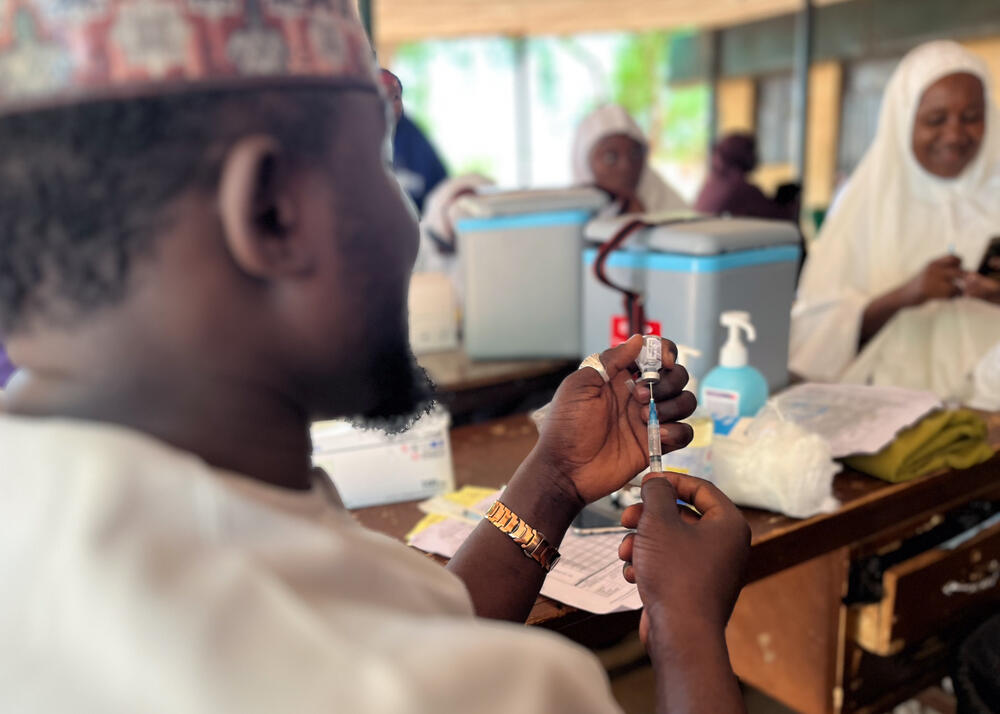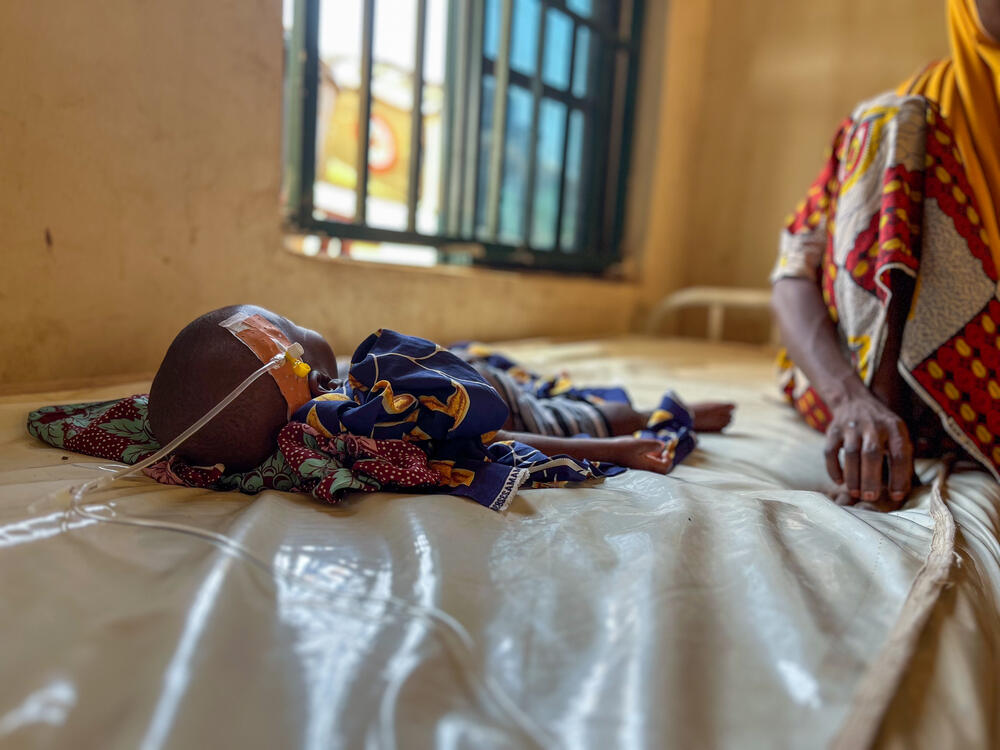How MSF vaccinated half a million people against meningitis in a week
When people in northwest Nigeria started experiencing mysterious symptoms, the cause wasn’t immediately clear. Cue the MSF response: diagnosing the disease, treating patients, and supporting a vaccination campaign which saw half a million people immunised in just one week.
In the first days of February 2025, many men, women, and children in northwest Nigeria suddenly became very ill. Some experienced convulsions or became unconscious. For those affected, the cause of the mystery disease was not immediately obvious.
“I woke up one morning with pain in the neck, stiffness in one leg, and back pain,” said 26-year-old Aisha Faruq, while recovering in the MSF-supported General Hospital of Gwandu in Kebbi, the most northwestern state of Nigeria.
“I vaguely remember what happened next, like going to school. That’s where I lost consciousness. When I woke up, I was here.”
As hospitals filled with patients, MSF health educators connected with the hardest hit communities to raise awareness and direct residents to MSF-supported medical facilities.
“Initially, community members often thought they had contracted malaria, as they were suffering from fever and headache,” said David Musa, an MSF community health educator in Gwandu.
“But some distinct symptoms such as neck stiffness or brain swelling in infants alerted us that we were dealing with something else.”
Soon after, the cause was officially confirmed: meningitis was behind the surge in admissions to health facilities in Kebbi and Sokoto states.
What is meningitis?
Meningitis is a major health threat with more than two million cases estimated to occur globally each year, with over 200,000 resulting in death. The disease is highly lethal if left untreated and studies show that 50 to 80 percent of patients may die without prompt medical care.
The wide area stretching from Senegal to Ethiopia known as the “meningitis belt” experiences recurring outbreaks.
Meningitis can be caused by viral or bacterial infections and spreads from person to person by respiratory droplets, throat secretions, or by faecal contamination.
Bacterial meningitis – commonly found in Nigeria – is the most serious type of meningitis and can cause inflammation of the tissues surrounding the brain and spinal cord.
Rapid care is vital
To help authorities respond to this very dangerous outbreak, MSF teams in Kebbi and Sokoto states quickly deployed staff and medical supplies to hard-hit areas, expanding bed capacity in several health facilities, training medical staff from the state ministries of health, and launching awareness-raising campaigns.
“In Kebbi, where most cases were reported, we admitted over 500 patients in the first 12 days of our intervention in the local government areas (LGAs) of Gwandu, Jega, and Aliero,” said Dr Sham’un Abubakar, MSF’s emergency coordinator in Kebbi.
“Even with the additional beds we installed, we had to place mattresses on the floor to accommodate the overflow of patients.”
Over a nine-week period, 2,095 patients were admitted for meningitis in the facilities supported by MSF in Kebbi.
In neighbouring Sokoto state, MSF teams supported case management, training, and the supply of medical supplies in five primary health care centres and two general hospitals in Tambuwal LGA.
By early May, MSF teams in Sokoto had treated a total of 880 meningitis patients in MSF-supported facilities.
Ten-month-old Sha’ayau was admitted to the Jega General Hospital in late April with multiple symptoms, including brain swelling. He was discharged many days later but referred to a specialist to evaluate potential neurological complications.
“His older brother was hospitalised [for meningitis] weeks ago,” said his mother, Saratu Hamza. “But now he has lost his hearing.”
The highest proportion of reported meningitis cases is among children aged one to 15 years old. Children under five are especially at high risk of dying.
“Unfortunately, survivors are also at risk of developing long-term neurological and cognitive problems,” said Dr Abubakar.
“Patients may suffer hearing loss, vision problems, and seizures, as well as increased pressure on the skull and brain.”
A mass vaccination campaign
While providing rapid treatment is key to preventing deaths and long-term consequences, fighting meningitis also requires vaccinating as many people as possible to break the transmission chain.
“Conducting a mass vaccination is essential, as it provides immunity against the disease for five to eight years, significantly reducing the risk of infection – even in the event of another outbreak,” said Dr Abubakar.
In Kebbi state, MSF teams partnered with UNICEF and the World Health Organization to support the state Ministry of Health in setting up an immunisation campaign. In just one week, close to half a million people were vaccinated, with two thirds of them under the age of 15.
While official figures are still being compiled, the Nigerian Centre for Disease Control (NCDC) recorded more than 4,000 meningitis cases nationwide between early February and early May.
Seventy percent of those cases were treated in MSF-supported facilities in Kebbi and Sokoto states.
Today, thanks in large part to MSF's swift and effective response, the number of cases in both states has declined, and our teams were able to gradually wind down emergency responses and transition back to routine treatment and regular medical activities, continuing to support Ministry of Health staff.
MSF in Nigeria
Médecins Sans Frontières/Doctors Without Borders (MSF) has been responding to disease outbreaks and emergency health needs in Nigeria for many years, focusing on maternal and paediatric healthcare throughout the country.
We have scaled up our activities in the north, particularly around treating malnutrition, as huge numbers of people caught up in the conflict depend on aid to survive.

